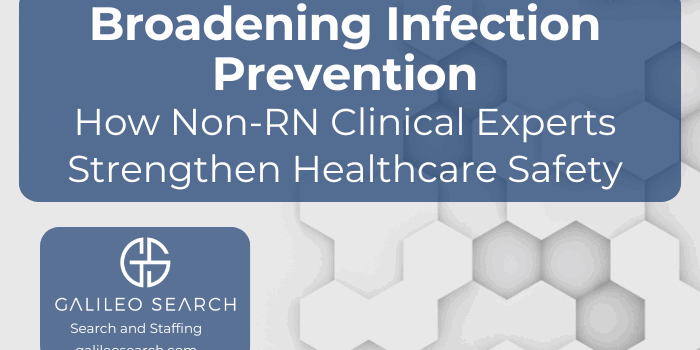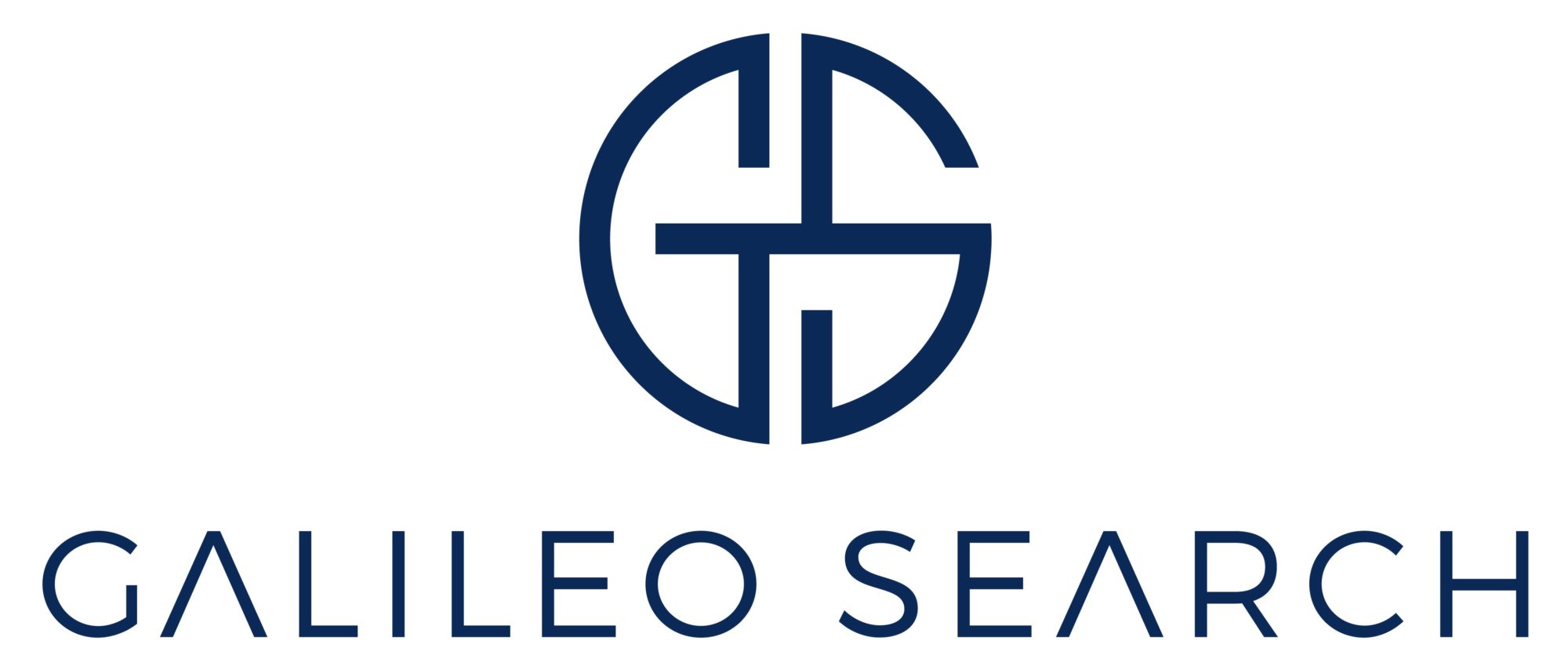The Galileo Compass: Navigating the World of Healthcare Staffing and Recruitment

Broadening Infection Prevention: How Non-RN Clinical Experts Strengthen Healthcare Safety
What is an Infection Preventionist?
An Infection Preventionist (IP) is a healthcare professional who prevents and controls infections in hospitals, clinics, and long-term care facilities.
Infection Preventionists do not have to be Registered Nurses (RNs). Professionals with backgrounds in microbiology, epidemiology, public health, pharmacy, and medical technology can qualify.
Non-RN Infection Preventionists offer unique advantages. They bring specialized skills in pathogen detection, data analysis, antimicrobial stewardship, and diagnostic accuracy. They help solve staffing shortages by expanding the candidate pool. They improve collaboration between nursing, laboratory, pharmacy, and public health teams. They strengthen readiness for emerging threats such as COVID-19 and antimicrobial resistance.
Bottom line: Hiring Infection Preventionists from non-RN clinical backgrounds improves healthcare safety, innovation, and resilience.
Why This Shift Matters for Healthcare Staffing and Infection Control
Infection Preventionists are vital to patient safety and public health. Historically, these roles have been filled almost exclusively by Registered Nurses. While RNs offer extensive clinical experience, the evolving demands of infection prevention highlight the value of professionals from non-RN clinical backgrounds.
Examples of non-RN backgrounds
- Microbiology – understanding pathogens and diagnostics
- Epidemiology – mapping disease spread and prevention strategies
- Public Health – addressing population-level risks
- Pharmacy – leading antimicrobial stewardship initiatives
- Medical Technology – applying laboratory science to infection control
At Galileo Search, LLC, we help healthcare organizations recruit Infection Prevention talent from diverse clinical disciplines—broadening staffing pipelines, improving team capabilities, and increasing resilience.
1) Diverse Clinical Perspectives Create Stronger Infection Control Strategies
Healthcare-associated infections are complex problems that require multifaceted solutions:
- RNs bring bedside care knowledge and patient advocacy.
- Microbiologists provide insights into how infectious organisms behave.
- Epidemiologists interpret surveillance data and identify intervention points.
- Public health experts design prevention programs with community-wide impact.
When these skill sets converge, infection prevention strategies become more innovative, adaptable, and evidence-driven.
2) Specialized Skills Strengthen Infection Prevention Programs
Each discipline offers distinct technical capabilities that benefit IP programs:
- Microbiology: rapid pathogen identification, outbreak source tracing
- Epidemiology: data analysis, trend prediction, intervention evaluation
- Pharmacy: antimicrobial stewardship, resistance management
- Medical Technology: diagnostic accuracy, lab-based quality control
Combining these abilities helps facilities respond faster, prevent more effectively, and improve patient outcomes.
3) Expanding the Talent Pool Helps Solve Staffing Shortages
Demand for Infection Preventionists is growing faster than supply. Limiting recruitment to RNs narrows the talent pool, slows hiring, and strains existing staff.
Opening roles to non-RN professionals:
- Unlocks previously untapped candidates
- Reduces time-to-fill for key infection control positions
- Enhances workforce diversity and inclusion
4) Interdisciplinary Teams Improve Collaboration and Compliance
Infection prevention requires coordination between multiple departments. A multidisciplinary IP team can:
- Build holistic, cross-functional protocols
- Improve communication and trust between teams
- Ensure policies are both practical and enforceable
5) Adapting to an Evolving Healthcare Landscape
The COVID-19 pandemic underscored the need for adaptable, cross-trained teams in infection control. Emerging threats like antimicrobial resistance and novel pathogens require rapid, informed responses.
Embracing non-traditional candidates:
- Increases organizational agility
- Prepares teams for future infectious disease challenges
- Reduces vulnerability to staffing shortages
Final Thought: Redefining the Infection Prevention Workforce
The belief that only RNs can serve as Infection Preventionists is outdated. Today’s challenges demand diverse expertise and specialized knowledge from multiple disciplines.
At Galileo Search, LLC, we connect healthcare organizations with top Infection Prevention talent—RN and non-RN alike—who can enhance safety, innovation, and readiness.
📩 Have an Infection Prevention opening? Contact Galileo Search today to access a diverse candidate pipeline ready to strengthen your infection control program. Staffing Request Form
